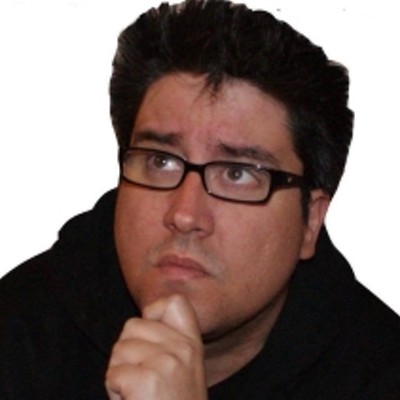Comedian Hari Kondabolu may talk about social issues and racial and cultural relationships but he's not on a quest to divide and conquer. He genuinely wants everyone to have a good time regardless of the political figurehead they worship.
"I just want to make them laugh," Kondabolu says. "The other stuff is a bonus. My goal is to be as funny as I can with what I find interesting."
He's also genuine on stage. If he's talking about white privilege or white chocolate in his act, it's not so he can mold his comedy into something easily marketable in its rebelliousness. He's truly engaged with the subject.
"I don't put on a political lens," Kondabolu says. "I just talk
Kondabolu says he hopes to "reach as many people as possible" with his comedy and his second album, Mainstream American Comedy, by presenting a mix of stories and observations that are "broad enough but still in my voice." He's currently on tour to promote his new album and it includes a stop in Dallas at Sons of Hermann Hall this Sunday.
Kondabolu got his start in stand-up in high school.
"After hearing all these terrible stories working with refugees and hearing how they left, comedy kept me
A talent scout discovered Kondabolu in Seattle and offered him a spot at the HBO Comedy Festival, which led to his first television appearance on ABC's Jimmy Kimmel Live. But despite getting such a big break, Kondabolu says he was still wary about making comedy his main career.
"I didn't think it was reliable," he says. "I didn't have a real sophisticated pallet either. I would do a funny voice and tell a simple story and after 9/11 happened, my politics formed. I questioned government. I saw South Asians being beaten up by Americans and all these detentions of brown people and that's what got me into it, human rights, and what I wanted to talk about were those issues. But on stage, I was afraid to. Because when you're a young comic, silence is horrifying, and I was afraid I was going to be trapped there."
Kondabolu says he decided to take a chance on comedy after watching a performance by
"It showed me that it was possible to say what you believe in a blunt manner and still be funny," Kondabolu says. "Comedy doesn't have to be for everyone. It can resonate
Another big influence for Kondabolu is comedian W. Kamau Bell, whom he describes as an "older brother, friend and someone I admire." The two met while touring together in 2008. "[We] hit it off immediately and it was clear it was going to be a great friendship because it's like, 'Oh, there's another comic like us who is thoughtful with language and likes to find people in power and go after them,'" Kondabolu says.
When Bell made a break into late night TV with Totally Biased with W. Kamau Bell on FX in 2012, he brought Kondabolu on board as a writer and on-air correspondent.
"I told him before he even had a show that once he gets a show, I'm gonna write for it," Kondabolu says.
Totally Biased went off the air a year later after moving to FXX but Bell and Kondabolu joined forces again to discuss politics and social issues on their popular podcast Politically Re-Active.
"People stop me on the street and say they like the podcast, which is weird because it's a podcast and they don't see faces," he says. "It's nice to know there's another aspect of my personality that I can put out there."
Kondabolu says that whether he's doing stand-up or a podcast, he's not trying to change people's political persuasions with his comedy. He's more interested in the person than the political identifications that are often used to label and divide people before they've even spoken a word to each other.
"You can’t force people to think or change their minds but you can put something different out there," Kondabolu says. "To me, I’m less interested in Republicans and Democrats. I’m interested in peoples' lives and my issue is to try and get to as many people as possible.”
Hari Kondabolu will perform at 8 p.m. Sunday at Sons of Hermann Hall (3414 Elm St.). Tickets are $15 at sonsofhermann.com.











